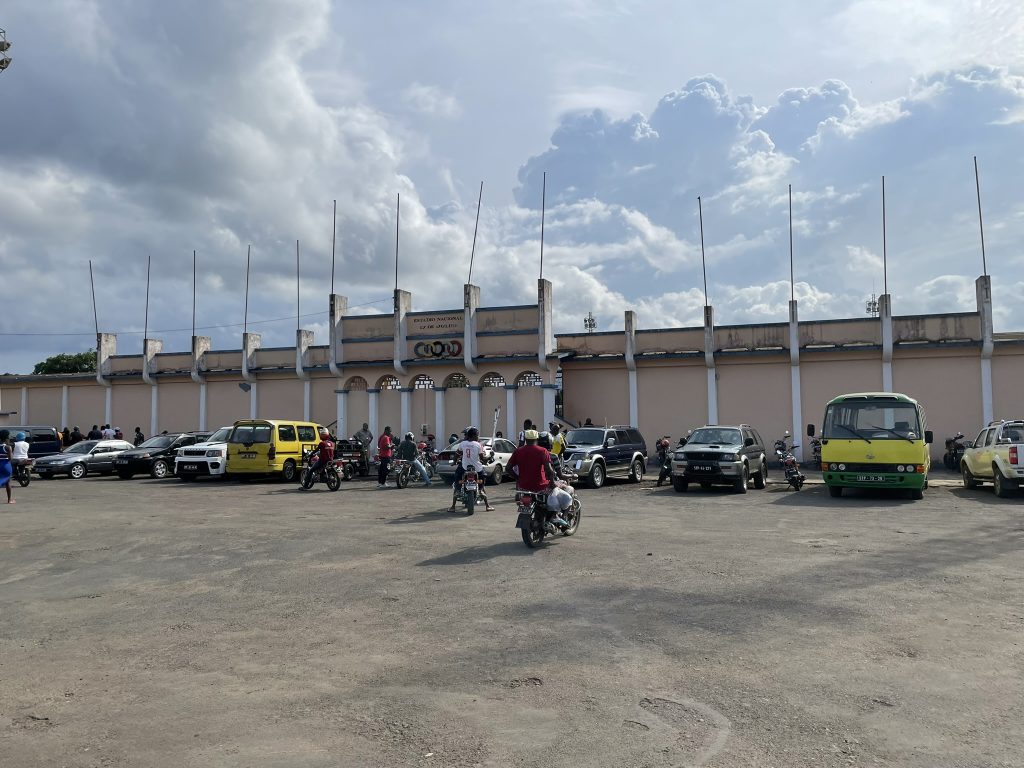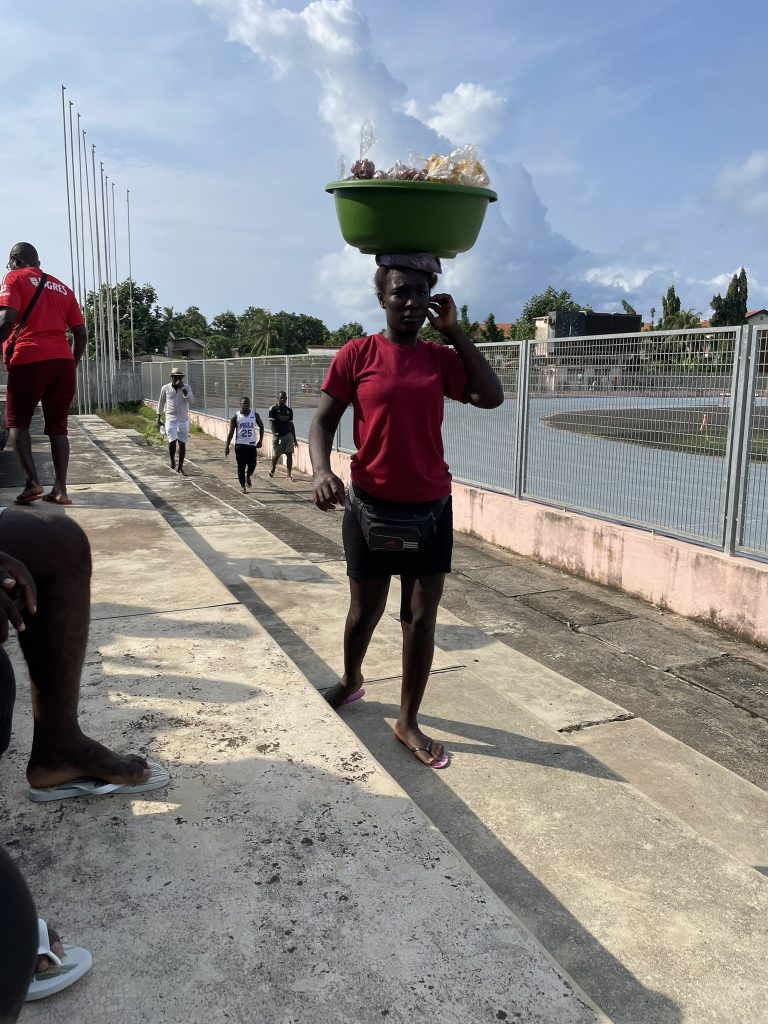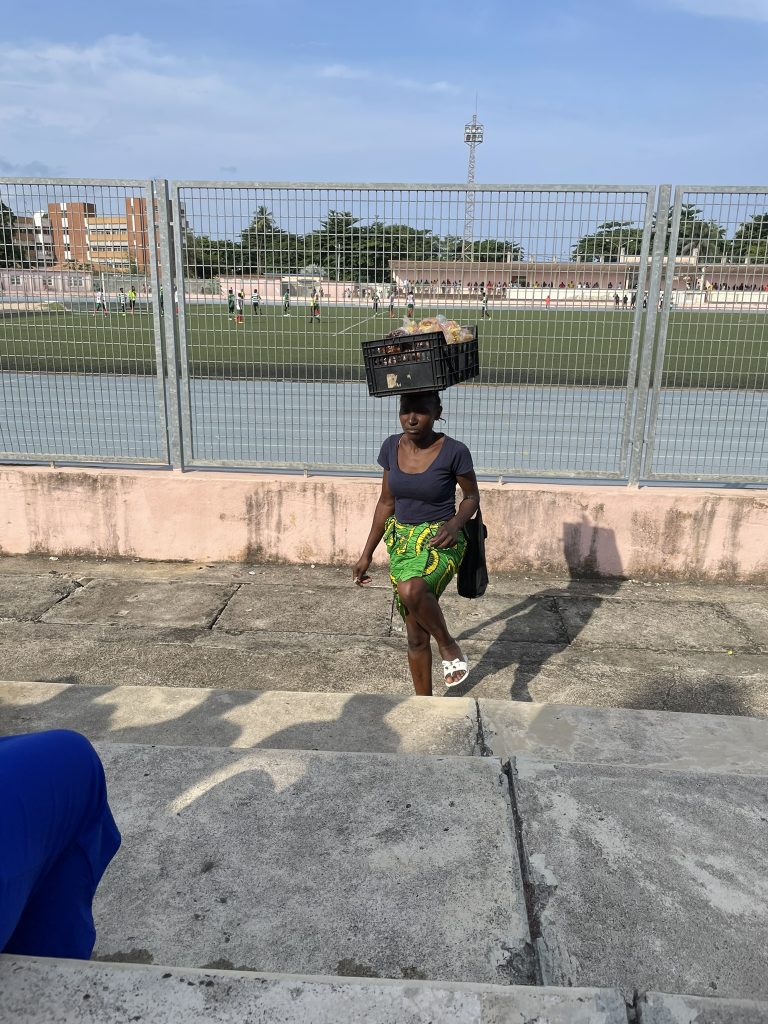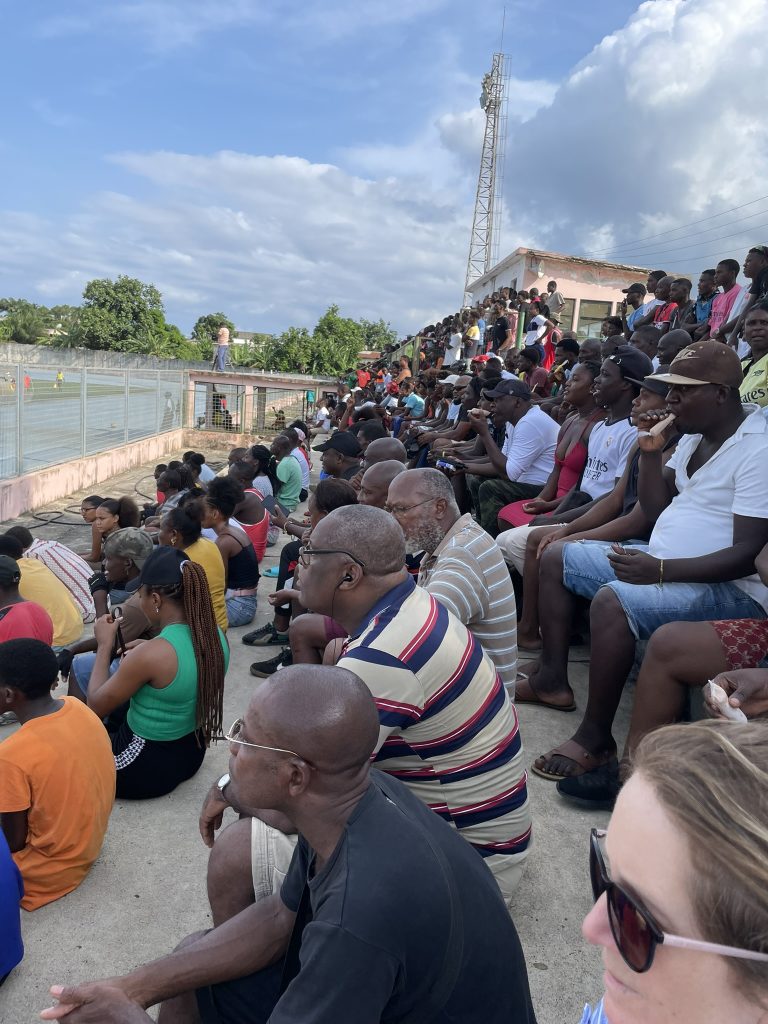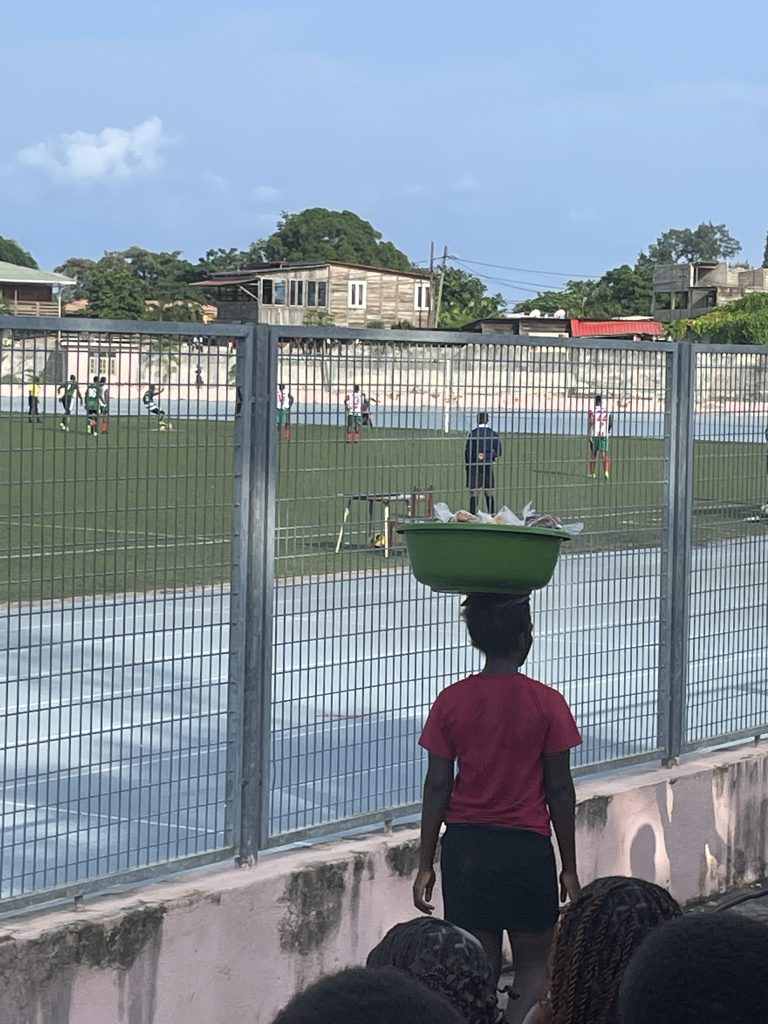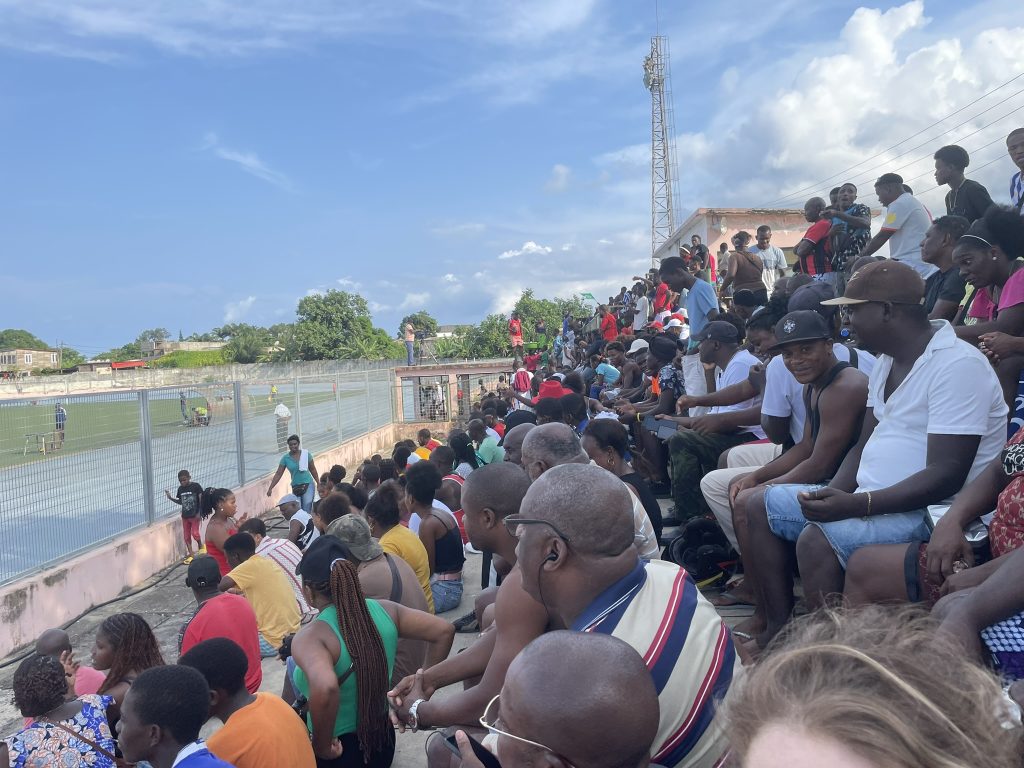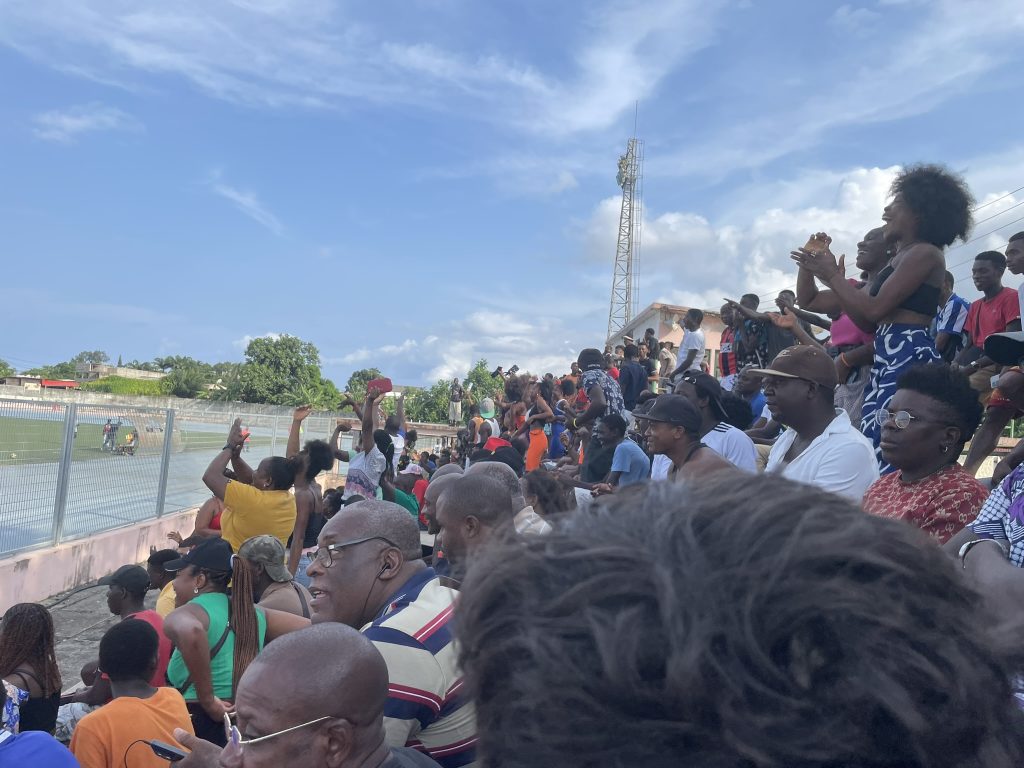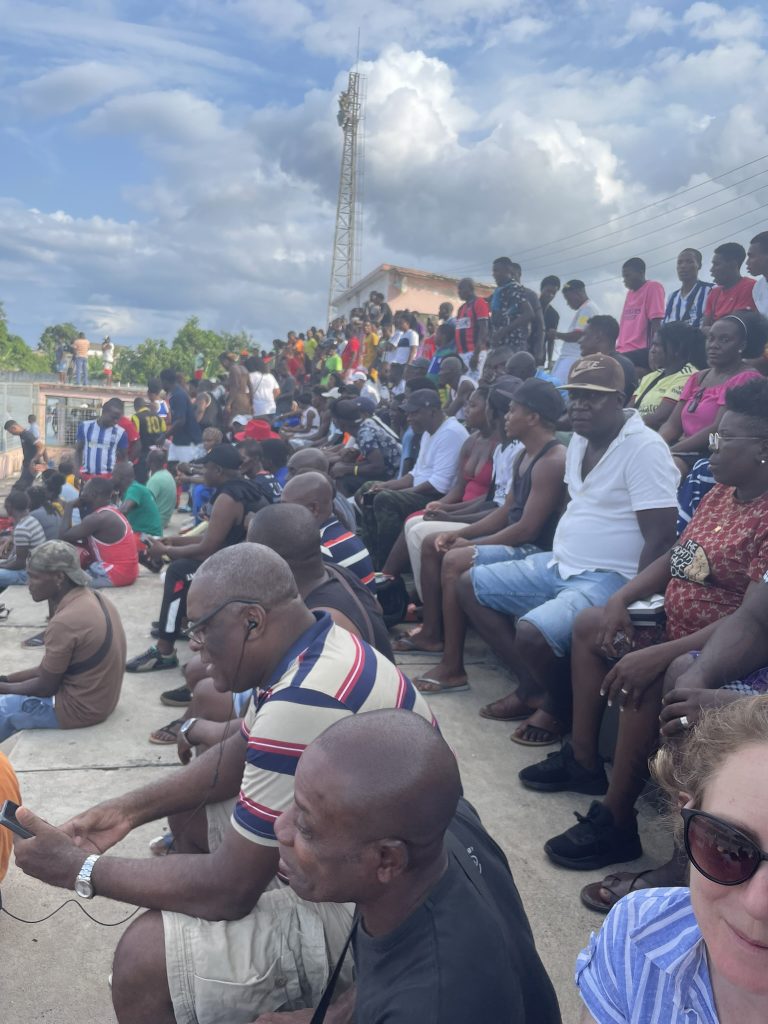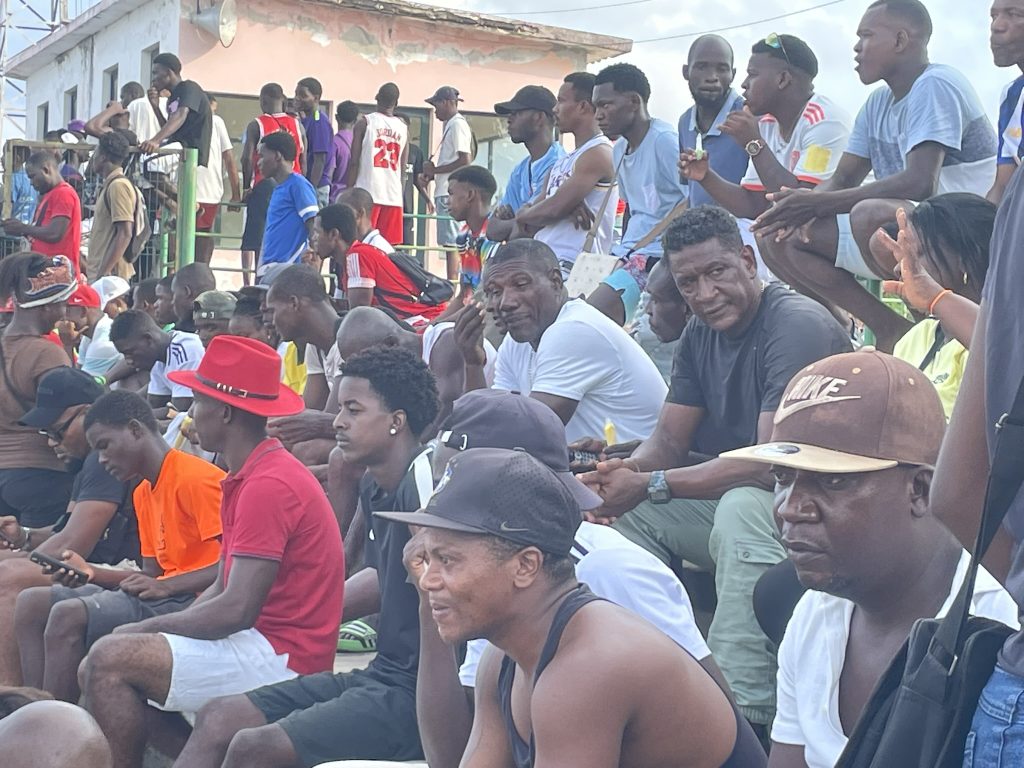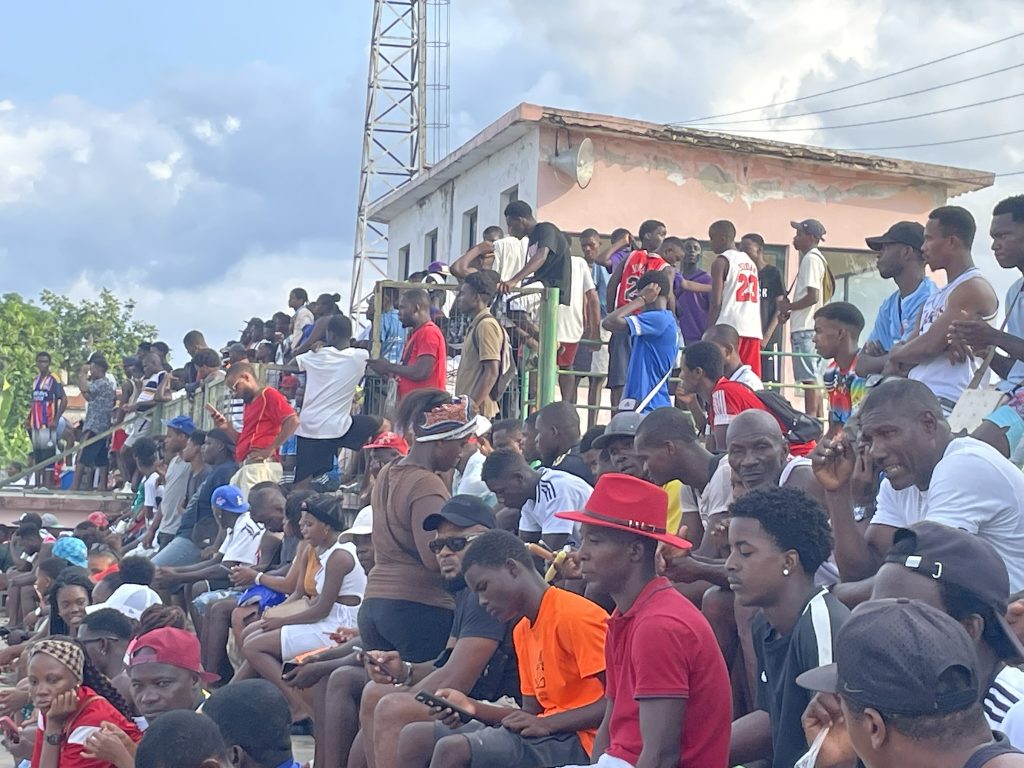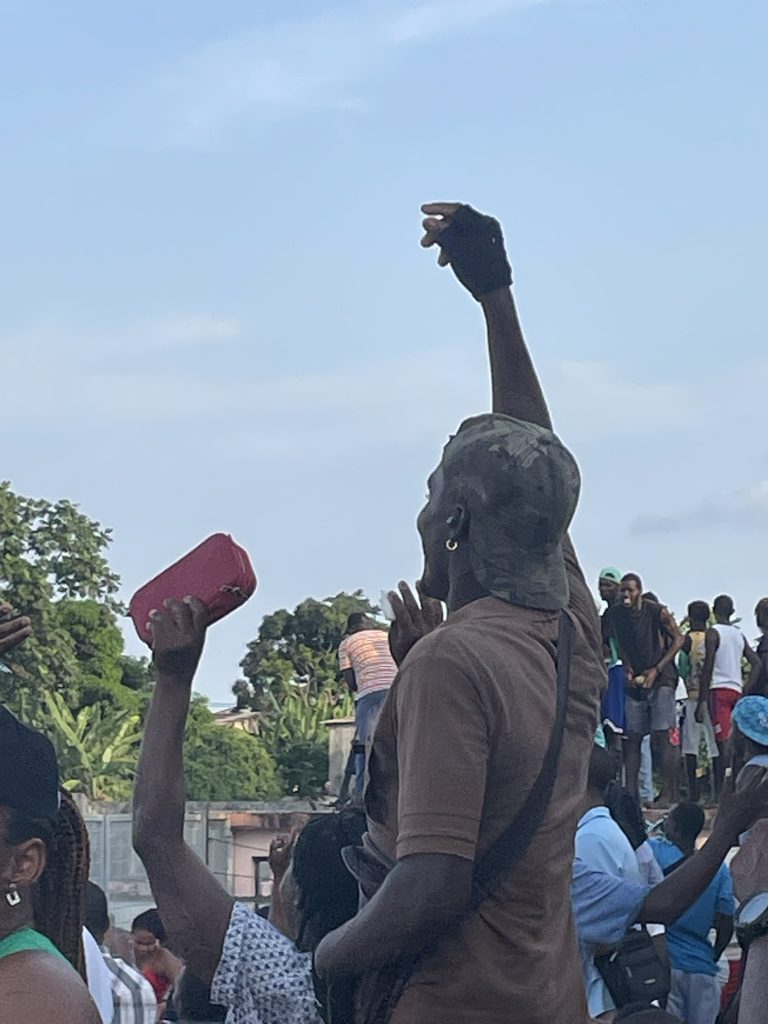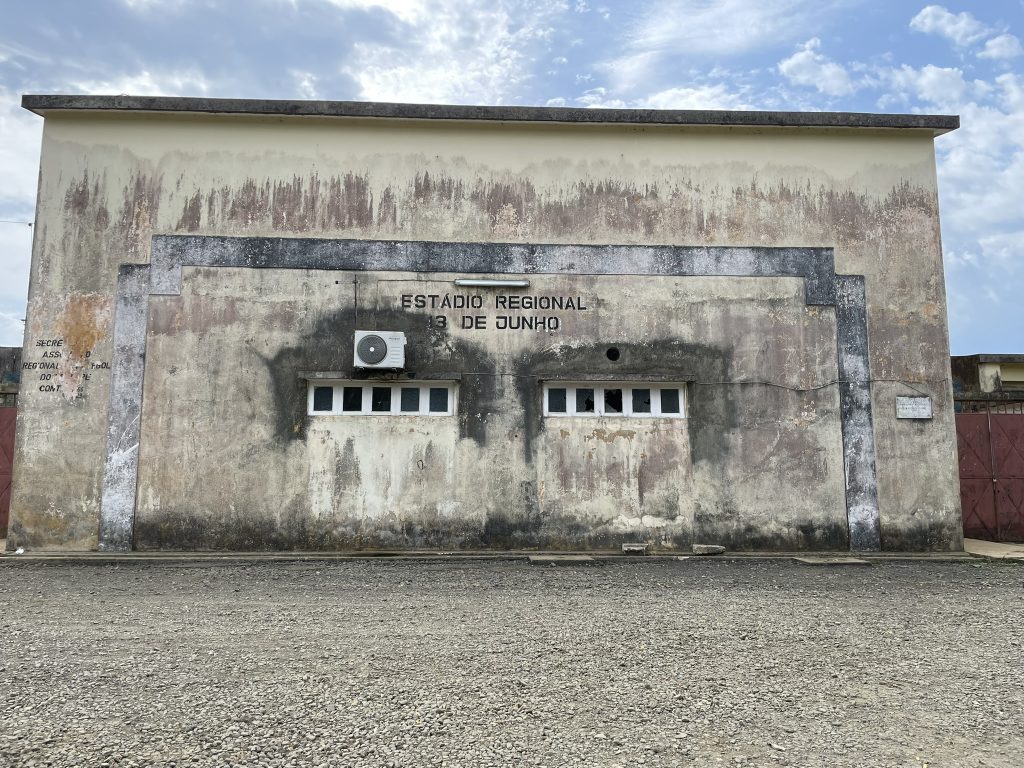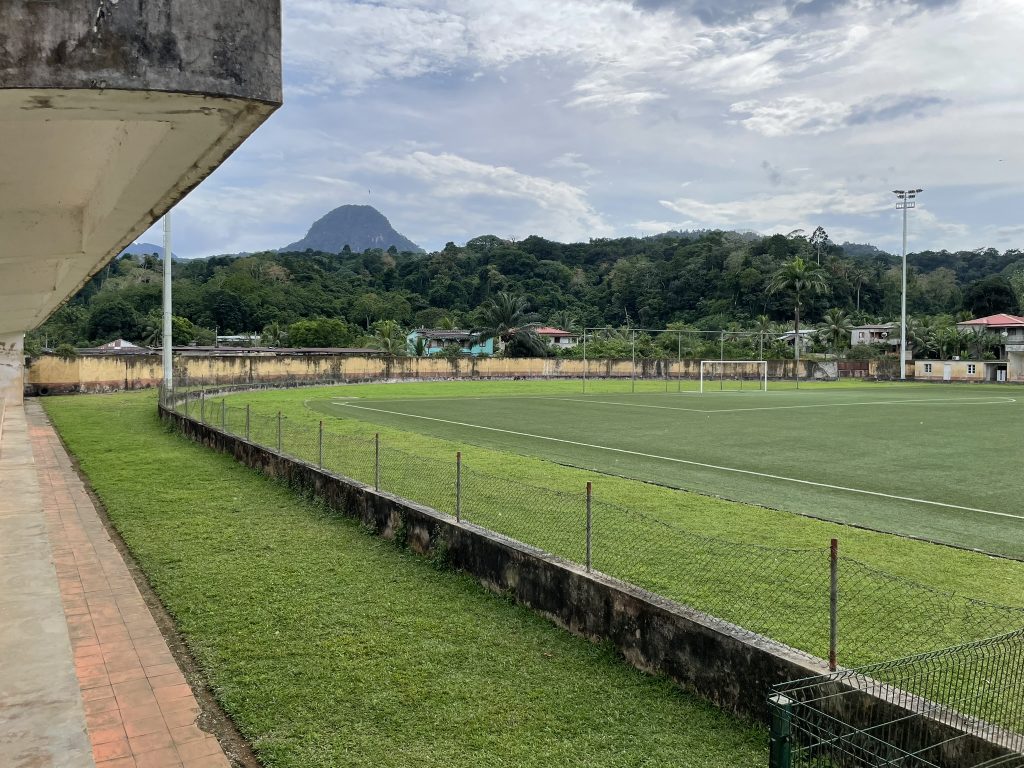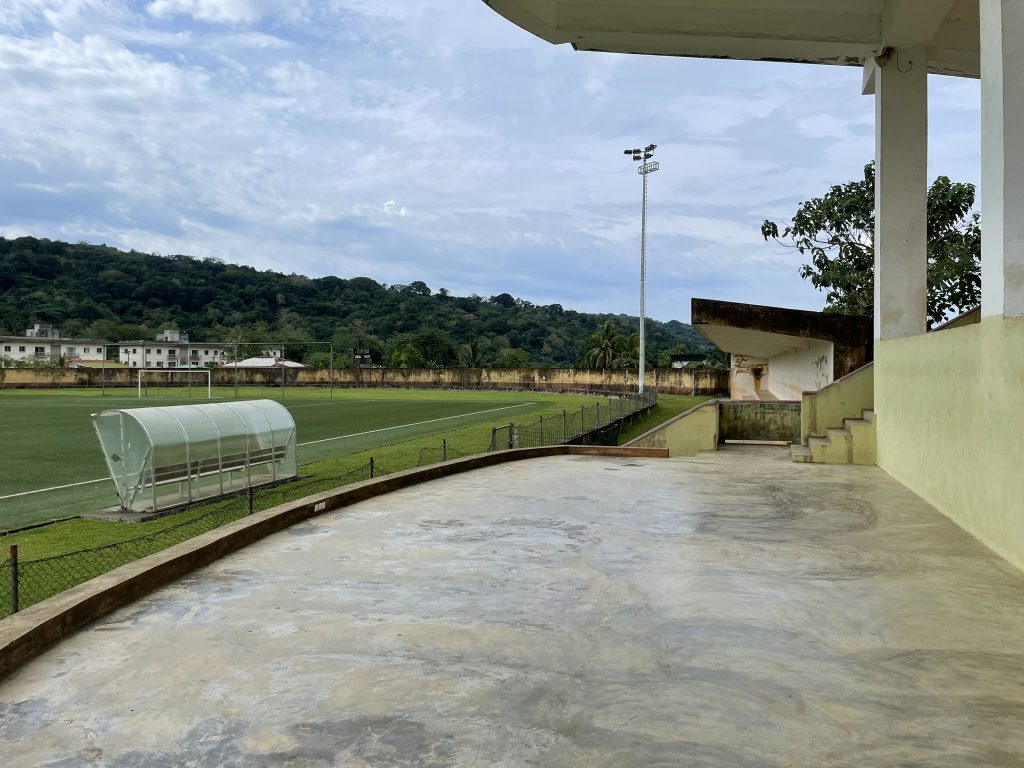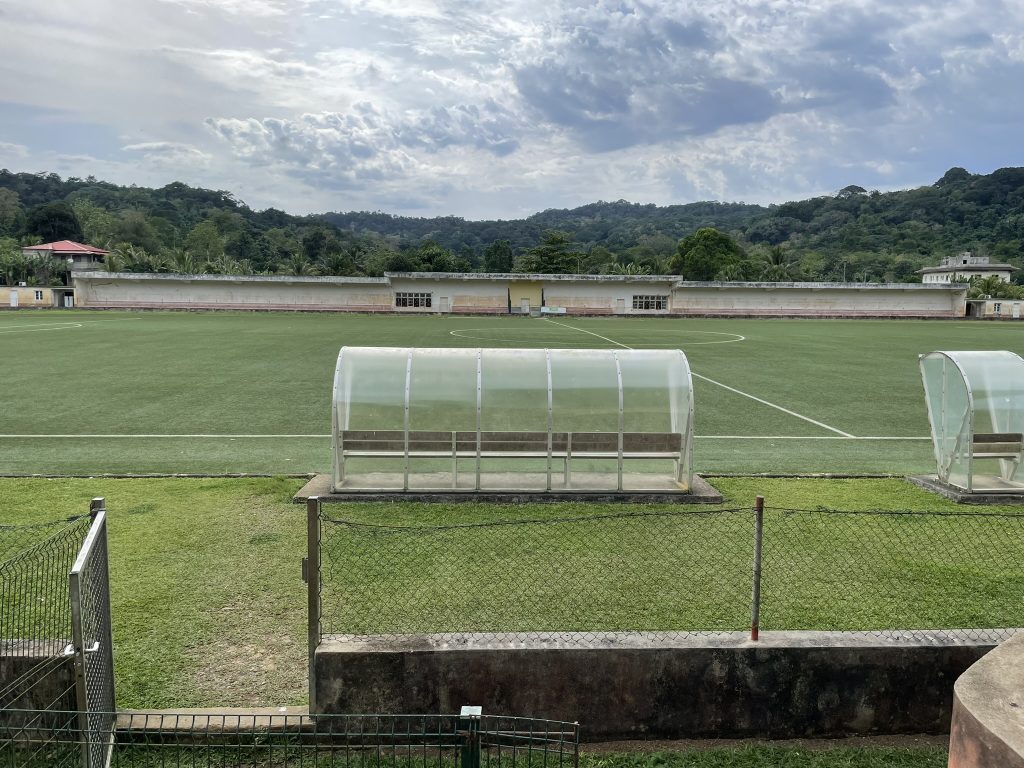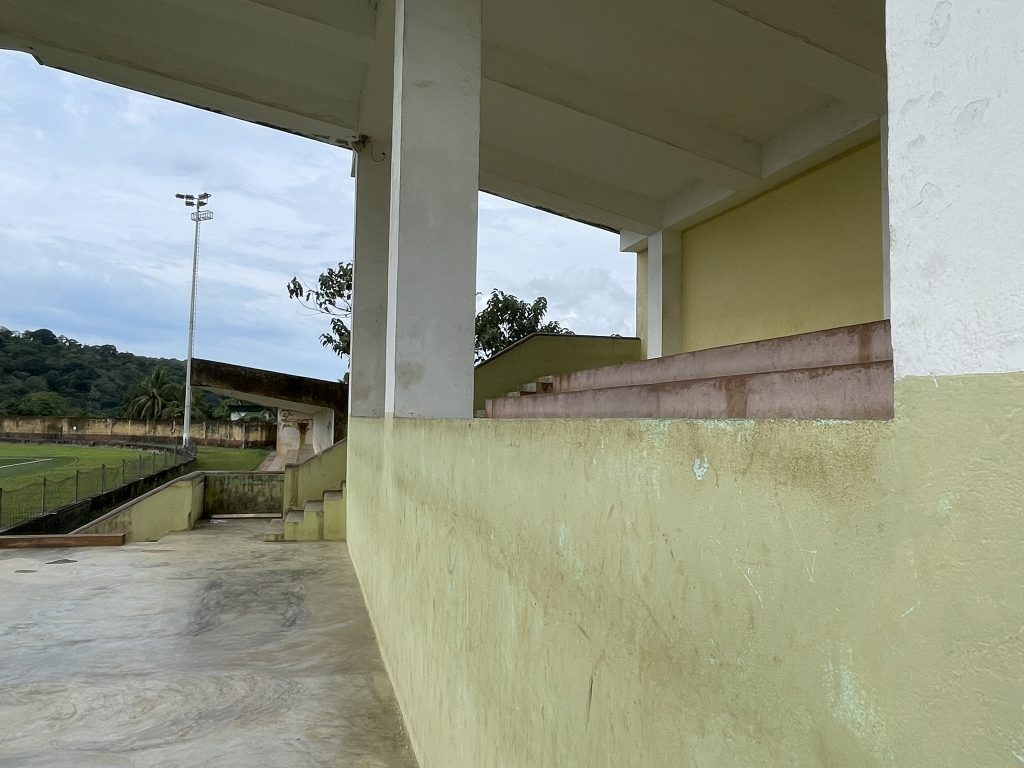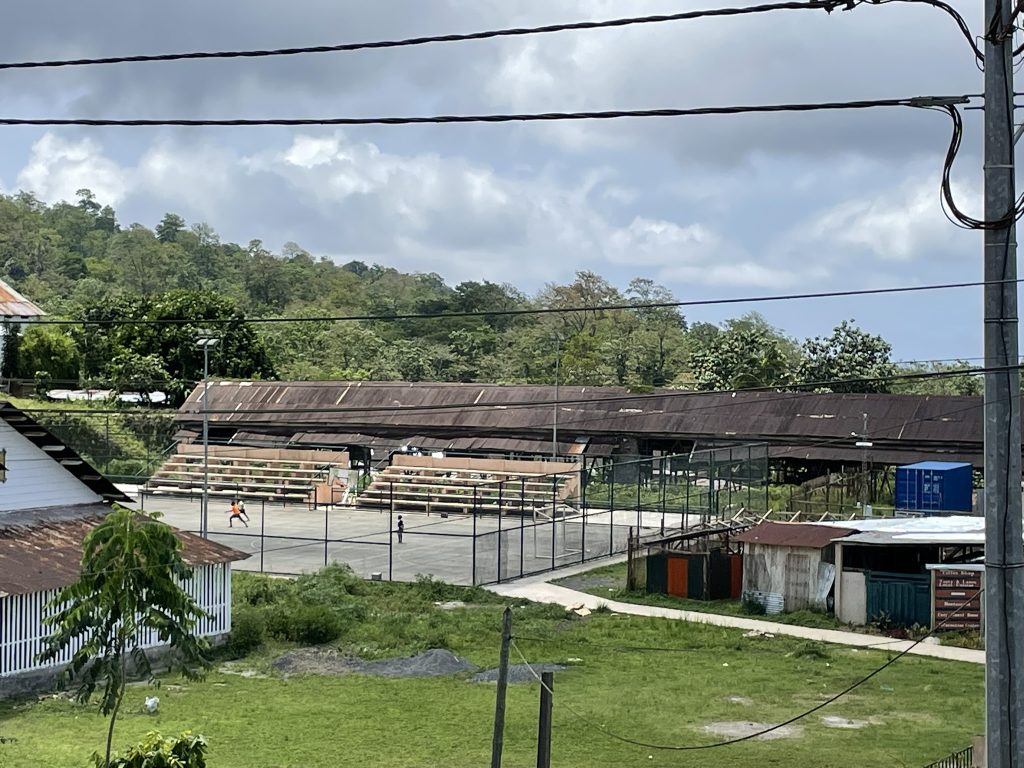Saõ Tomé’s Beautiful Game
Just visited Saõ Tomé and Príncipe – Africa’s second smallest country – and in my 10 days there I caught up on the football. I watched a men’s game in the Capital between AgroSport (current champions) and S.C. Praie Cruz (winner of most championships) with the former coming out 2-1 winners against a team that had won its first six games of the season, and consequently going second behind them on goal difference.
There was a lively partisan crowd of an estimated 6-800 in the 12 De Julho Estadio Nacional (Capacity 6500) – no longer judged fit for International fixtures – pictures attached. I also caught another ground in Monte Café (pictured).
On Príncipe it wasn’t possible to see a match as I was only there for two nights, but did visit the Estadio Regional 13 De Junho, the island’s 1000 capacity ‘main’ stadium (pictures).
The two islands forming the country are even more uneven in population than size. A hundred miles apart, Príncipe is six times smaller and four times less densely populated, with approximately 220,000 people on Saõ Tomé and fewer than 10,000 on Príncipe. On the main island the top of three divisions has 12 teams with two relegated. The other two divisions have ten teams each, while Príncipe has a single division of 6 teams with no relegation. On Saõ Tomé four of the twelve teams use the National Stadium as their home ground, while on Príncipe all matches are played at the Regional Stadium.
The respective island champions play-off against each other for a place in the Africa Champions League for the following year. Allowing for the demographic differential, since post-Colonial football started in 1977 – Portugal granted the islands independence in 1975 – the smaller island has won seven out of twenty-nine, although admittedly their last win was in 2012. There is a Cup Competition played on the same basis with the Winner’s of the respective Island Cups playing off against each other. The programmes have been regularly punctuated by political unrest and the rest across the decades as post-colonial communism collapsed in the wake of the Soviet Empire in the early nineties. The situation is more stable now with the EU observing and certifying the last elections.
Women’s football was established in 2002 as a single league of ten teams and I was able to meet with the National Team Coach. The Men’s National Team is in the World Cup Qualifiers 2026, and after four matches are a respectable bottom of Group which includes Equatorial Guinea, Liberia, Malawi and Namibia. Two of the country’s squad play in England, for Hampton & Richmond Borough and Farsley Celtic respectively. The country’s history, geography, luscious tropical scenery, friendly people and quirky football would make it a perfect fit for a Glory issue.
